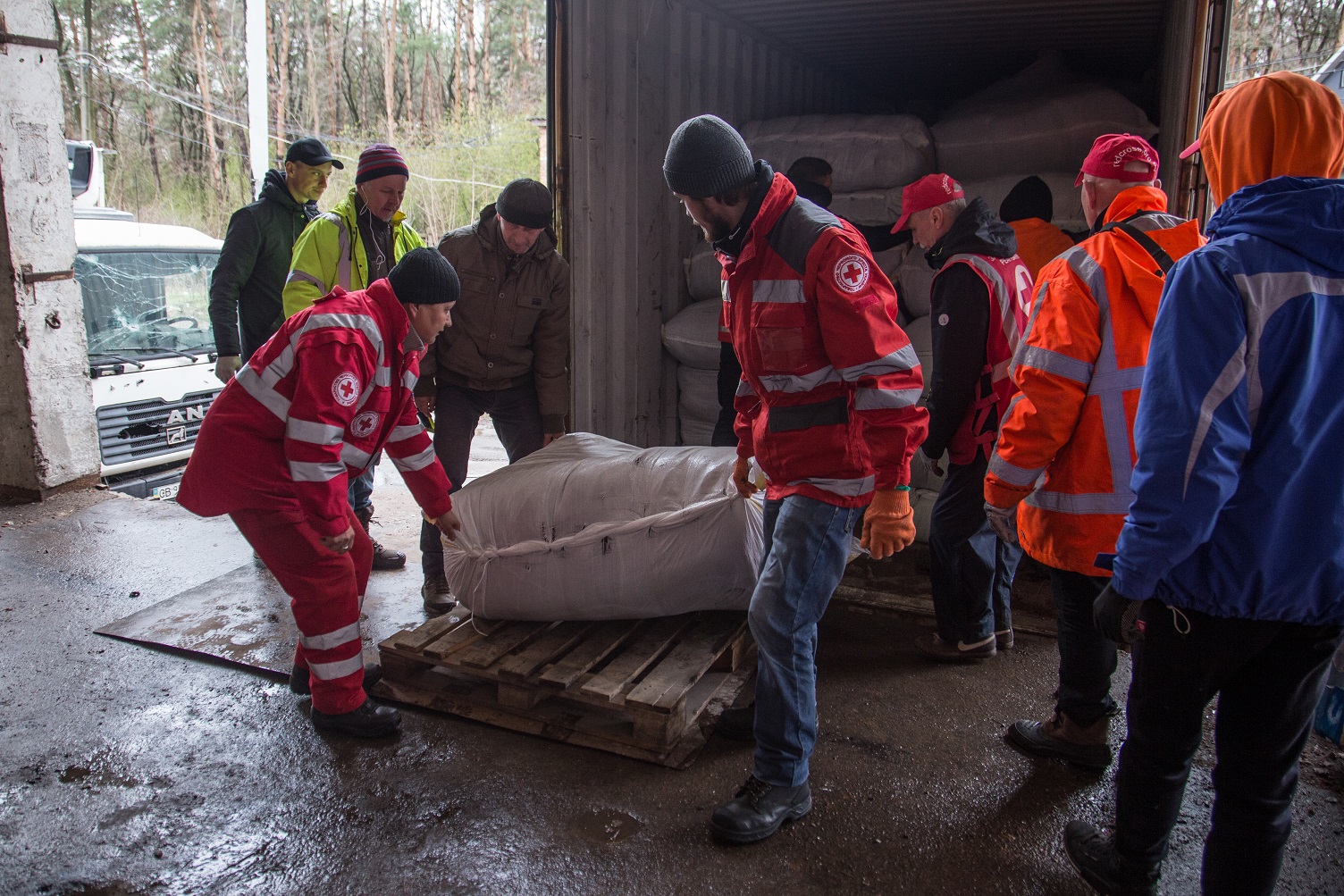More than 300 million people need humanitarian assistance
The number of people in need of assistance has more than doubled in a few years. Finland has responded to this need both financially and by improving the methods of delivering assistance.

On 19 August, we celebrate World Humanitarian Day. The purpose of humanitarian assistance is to save lives, alleviate suffering, and maintain human dignity during crises. According to the humanitarian principles, we should provide assistance wherever it is needed.
Russia’s invasion of Ukraine has brought a humanitarian crisis closer to Finland, increasing the nation's awareness of humanitarian issues. More than 17 million people are in need of immediate emergency relief in Ukraine and its neighbouring countries. The need for food aid is among the most urgent, especially in the southern and eastern parts of Ukraine.
Ukraine has made us watch closely typical humanitarian challenges experienced in numerous other crises in other parts of the world.. These include problems with humanitarian access, difficulties in reaching the most vulnerable people, increased gender-based violence, disinformation targeting also aid organisations and the importance of neighbouring countries in receiving refugees and and alleviating the crisis.
Ukraine and other crises in the world
It is important that we respond to Ukraine’s humanitarian needs. At the same time, we must make sure that other crises in the world are not overlooked. By doing so, we also refute Russia’s claims that Western donors have “forgotten the rest of the world”. Finland, along with other nations, has allocated supplementary financing to help Ukraine in order to continue supporting humanitarian response in other crisis.
The number of people in need of humanitarian assistance has more than doubled in just a few years. While 132 million people were in need of assistance at the beginning of 2019, the number has increased to 306 million by August 2022. Most humanitarian crises are caused by armed conflicts, but natural disasters, climate change and the COVID-19 pandemic have also heightened the need for assistance.
The Russian military attack and the secondary impact it has on food security have only exacerbated the existing humanitarian needs, especially in areas dependent on imported grain and food aid, such as Somalia, Afghanistan and Yemen. They have also introduced a new global political dimension to the provision of assistance.
Methods of delivering assistance should be improved
The surge in humanitarian needs is bringing new dimensions and challenges to the planning of assistance. As the number of crises keeps rising and needs keep growing, humanitarian organisations are increasingly forced to prioritise their aid, while they urgently try to find ways to make their activities more efficient. Cash assistance and localization of humanitarian planning and implementation are growing in importance.
Finland is actively promoting these reforms, for example in the Good Humanitarian Donorship initiative, which we are currently co-chairing with Belgium. The priorities of our co-chairpersonship include localization of aid, considering the needs of persons with disabilities, and preventing gender-based violence. In prioritising assistance, it is more important than ever to ensure that we reach the most vulnerable people. In all humanitarian action, Finland stresses the importance of assisting persons with disabilities as well as women and girls.
Finns support humanitarian action
Often assistance is most urgently needed where it is most difficult and dangerous to deliver. Ukraine and Tigray in Ethiopia, for example, are facing situations where assistance is available but cannot reach those in need. The role of and need for humanitarian diplomacy, i.e. advocacy seeking to influence the parties to the conflict, are therefore increasingly important.
The growing gap between the need for assistance and the available funds highlights the importance of coordinating humanitarian action and those involved in it: we must have better cooperation between humanitarian assistance, development cooperation and peace building and adopt a comprehensive approach to them.
Finland’s active humanitarian agency is important from many perspectives. Responding to humanitarian needs is essential for realising human rights and respecting human dignity, while adherence to and promotion of humanitarian principles are a key to maintaining a rules-based international system.
According to a survey conducted by Taloustutkimus in June, as many as 77 per cent of Finns consider humanitarian assistance offered by Finland important. This provides a fair basis for Finland to continue and develop our humanitarian action.
Lauratuulia Lehtinen
Director, Unit for Humanitarian Assistance
